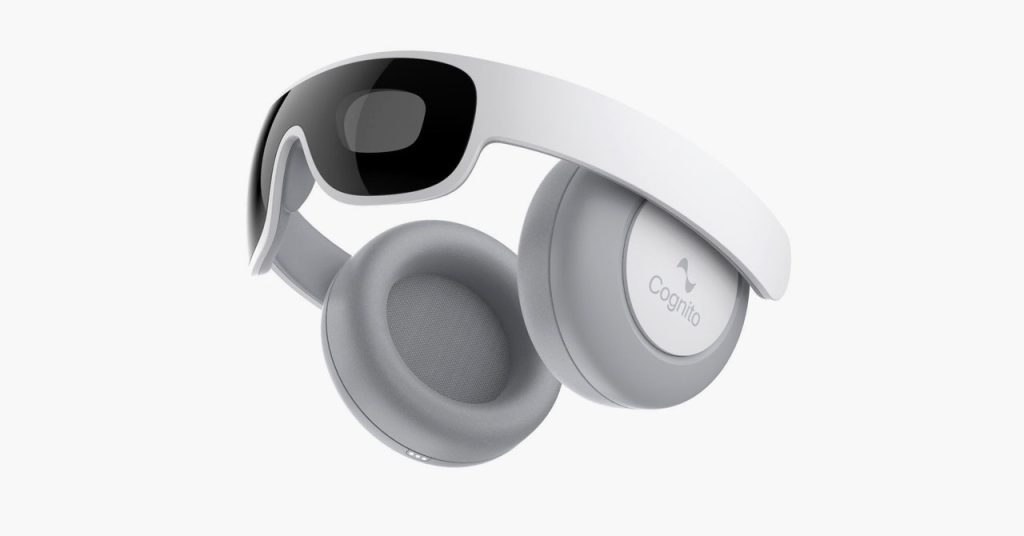A Drug-Free Approach to Combating Alzheimer’s Disease
Cognito Therapeutics’ Innovative Headset
While pharmaceutical companies are finally making progress in developing drugs to slow the progression of Alzheimer’s, startup Cognito Therapeutics is taking a different approach. The Cambridge, Massachusetts-based company has developed a headset that aims to combat cognitive decline without the use of medication.
Promising Results from Phase II Trial
In a Phase II trial published in the journal Frontiers in Neurology, Cognito Therapeutics reported that their novel treatment is safe and showed early indications of potential benefits for Alzheimer’s patients. Murali Doraiswamy, an Alzheimer’s expert from Duke University who is not involved with Cognito, expressed cautious optimism about the results:
“I think it’s extremely promising. It’s preliminary, so there’s a lot of reason for cautious optimism. But if it works, it would be totally different from anything else we have in the field.”
Stimulating Gamma Waves in the Brain
The Spectris headset delivers flashing lights and sounds through connected glasses and headphones to stimulate gamma waves in the brain. Gamma waves are fast-frequency brain waves associated with thinking skills and memory, and people with Alzheimer’s typically have fewer of these waves. By producing light and sound at 40 hertz, the device activates the brain’s visual and auditory pathways, generating gamma waves and potentially strengthening and synchronizing neural connections.
The Spectris device delivers light and sound to stimulate gamma waves in the brain.

Photograph: Cognito Therapeutics
Study Results and Implications
The Cognito Therapeutics study included 74 participants with mild to moderate Alzheimer’s who received either the Spectris stimulation or a placebo device. Compared to the placebo group, those who received the Cognito stimulation showed:
- 77% slowing in functional decline
- 76% slowing in cognitive difficulties
- 69% reduction in brain atrophy
Ralph Kern, Cognito’s chief medical officer, likens using the device to getting regular physical exercise for the brain. While users must remain stationary and awake during the one-hour daily sessions, 85% of participants were able to use the device consistently.
The Science Behind the Approach
Cognito’s approach is based on research by MIT neuroscientists Li-Huei Tsai and Ed Boyden, who cofounded the company. Their previous work with mice showed that 40-hertz light and sound stimulation improved memory task performance and reduced levels of amyloid, a protein that forms plaques in the brains of Alzheimer’s patients. A new paper in the journal Nature suggests that the stimulation may activate a waste-disposal mechanism in the brain.
Next Steps and Potential for Complementary Treatment
Cognito Therapeutics is now beginning a larger Phase III trial with more than 500 participants who will wear the device daily for 12 months. Christopher Weber from the Alzheimer’s Association emphasizes the need for more extensive studies with diverse cohorts to fully understand the relationship between gamma wave activity and Alzheimer’s.
Kern sees potential for the Spectris headset to be used as a standalone therapy or in combination with new Alzheimer’s drugs that target amyloid, such as Biogen and Eisai’s Leqembi and Eli Lilly’s donanemab. These antibody treatments offer hope but come with risks, such as temporary brain swelling or bleeding. In contrast, Cognito’s treatment did not cause these adverse events or other serious side effects in the Phase II trial.
As Doraiswamy states, “We need safe treatments. We need treatments that can be administered at home, and we need treatments that are really complementary to what we already have. This meets all of those criteria. All we need is a consistent positive signal in the big trial.

3 Comments
Combining light and sound for Alzheimer’s treatment sounds like a sci-fi solution that’s becoming reality, doesn’t it
A futuristic approach to Alzheimer’s therapy, this headset could change lives, blending the powers of light and sound.
Headsets using light and sound to fight Alzheimer’s? Truly, we’re living in the future now.